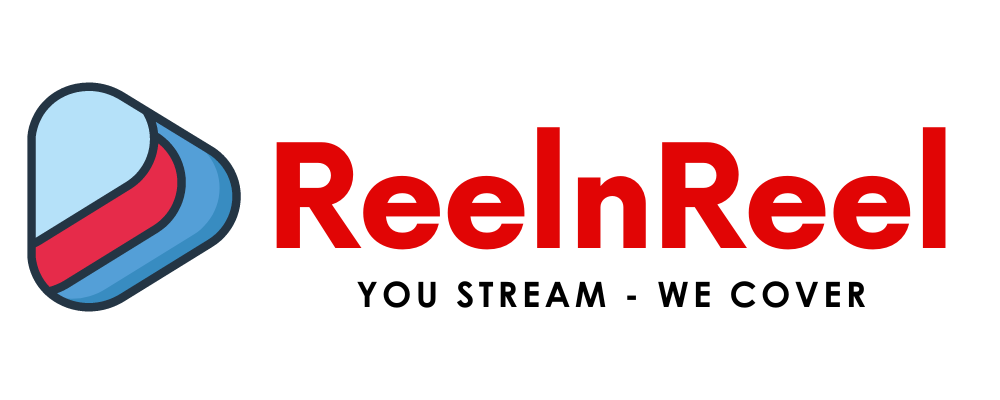Live streaming is the future of broadcasting, and it’s time to get on board. Live streaming provides a more authentic experience for viewers as they can see what you’re doing in real-time.
Streaming services like YouTube are excellent, but many drawbacks come with them, such as not broadcasting live events or charging people who watch your videos without using Adsense (Google’s ad network). With blockchain technology, we can now offer an alternative free from the censorship and control of centralized companies like Google and Facebook.
This blog post will give you everything you need to know about how decentralized live streaming works and why it’s so much better than traditional video-sharing sites.
Live streaming has been a popular method of broadcasting online. The popularity of live streaming is due to the immediacy and authenticity it presents to viewers. However, traditional live streaming platforms are centralized, meaning that there is one point where all data is stored which makes for an easy target for hackers.
Blockchain technology offers a decentralized way to store data so that there are many points where information can be stored, making the system more secure against hacking attempts. This blog post will explore why blockchain could offer a safer alternative than traditional live stream platforms.
What is blockchain?
Blockchain is a great way to send and receive money without having to pay fees.
Blockchain is a new technology that allows people to make direct transactions without an intermediary.
Blockchain is a distributed ledger that helps the exchange digital assets.
What is live streaming on a blockchain?
Blockchain is a shared ledger that everyone can see and verify. When I Livestream, people can watch me in real-time from around the world without any delay because all the information is immediately available.
Blockchain live streaming is an emerging technology. It allows you to upload content and get paid immediately, regardless of the device type.
Live streaming allows you to broadcast your video live across the internet and provide your viewers with a unique experience. However, users need to understand that there are two types of streams: those that exist on centralized platforms like Twitch and YouTube.
Streaming on a blockchain is an emerging technology that enables you to stream media without paying any fees.
How to create a Live Stream on Blockchain
Look for a blockchain-based live-streaming service provider like DICE.tv, which handles the decentralized web infrastructure and security and deals with content distribution. It’s already available to use on both PC and mobile devices.
Or start your own live-stream network using a blockchain platform like Ethereum, Bitcoin, or IPFS protocol and decentralizing the streaming infrastructure by building their own peer-to-peer broadcasting solutions where you can host your own video files instead of renting them from another person or company.
You should also be able to track how many times your videos are being watched to get paid accordingly, enabling full transparency and a sense of ownership over the content you make available. Additionally, it should allow users to convert.
You can use a decentralized file storage system such as IPFS and then encode both video and sound into the files. You could also use another blockchain solution like RaiBlocks for scalability because they already have features to support media-intensive applications.
A live stream on the blockchain, or distributed streaming applications in general, takes up a lot of bandwidth and requires more power than your average website. They are also only viable if few people want to view them simultaneously (e.g., 100 concurrent viewers).
Decentralized content creation is coming soon to some centralized platforms like Facebook Live and innovations for peer-to-peer video sharing such as Streamium from Thrive Market.
Where can you find Live Streaming apps for Blockchain?
Bitcoin may have created a surge of interest in blockchain technology and cryptocurrency, but what we do with this newfound curiosity is up to us. There are many ways blockchain can be used for so many purposes, from tracking food products to gun ownership regulation.
And because publishing all transactions on a public Bitcoin ledger makes it easy to monitor them, it makes sense that live streaming apps would soon follow suit and establish themselves as the perfect means with which to keep tabs on any number of blockchain activities happening nationally or internationally.
Those who are especially interested in keeping an eye on our nation’s borders may enjoy watching Liberty Live Stream (LS2).
Answer: In order to find live streaming apps for blockchain, one would need to define which blockchain they are talking about. There are many types of blockchains with different purposes.
Blockchains such as Ethereum and Lisk offer the ability to create decentralized applications within their networks. With various app types ranging from games, internet browsers, social networks, file storage services the list goes on there’s no shortage of options for those looking for a flashy way to promote their business idea while simultaneously building it on blockchain technology!
If you’re simply looking for an excellent informational platform about what exactly “blockchain” is and how it works in relation to other contemporary technologies such as Bitcoin or IOTA.
Pros and Cons of using a Live Stream app on the Blockchain
Pros:
- Live streams are more engaging and interactive than traditional videos
- Viewers can chat with the streamer as they would at a live concert
- Creates a sense of community between viewers
- All information is encrypted and stored on the blockchain, making it very secure
- You can use live streams to share with friends or strangers in real-time from your phone
- Live streams are perfect for events like concerts that you want to see but don’t have a ticket for
- There are no ads on live stream apps because any company does not host them- instead, you pay people who watch your stream using cryptocurrency (like Bitcoin) to view them
- Live Streams can be shared with anyone in the world
- No need for a third party to host, manage, or moderate content
- The blockchain is decentralized, so there’s no single “point of failure,” and anyone entity cannot shut it down.
Cons:
- Some people might find it too difficult to use, especially if they don’t have much experience with technology
- Live streaming apps are often used by cybercriminals to commit crimes or distribute malware
- live streamers are vulnerable to cyberattacks and hacking
- Content creators may not get paid if they don’t have enough viewers because they will only receive money when someone watches their stream for at least 5 minutes
- Live streamers can get paid for their content
- Streams can be recorded and archived, giving viewers a chance to rewatch the live stream at anytime
- Live streams can be viewed at any time, anywhere
The benefits of decentralized live streaming
- You can watch your favorite shows from anywhere in the world, even when they’re not airing live
- Watch on your TV, computer, tablet, the mobile device–anywhere!
- Don’t miss out just because you don’t have access to cable
- You can stream live or pre-recorded content from anywhere in the world
- Live streaming provides a better connection to audiences, making it more personal and intimate
- It’s less expensive than traditional broadcasting because there are fewer middlemen involved
- Decentralized live streaming allows for a wider range of content
- It has no centralized point of failure, making it more reliable and secure
- There are no restrictions on who can broadcast or view the stream
- It is not reliant on any one company to operate
- No centralized provider that can be shut down
- Live streaming is less expensive than traditional TV broadcasting
- The content creator has complete control over the distribution of their content and its monetization
- The live streaming can be viewed by anyone, anywhere
- Live streaming is a great way to connect with people from all over the world
- It’s free and easy to set up your own live stream
- You can share your thoughts, ideas, or products in real-time
- There are no limits on how many viewers you have
- Decentralized live streaming is more secure because it doesn’t rely on a central server
- It’s also more scalable and cheaper than centralized broadcasting, which can be expensive to maintain
- Streaming content with decentralized live streaming allows you to reach a global audience in real-time
- Get live feedback from viewers
- Reach a large audience in real-time
- Connect with people across the world without geographical limits
- Live stream events that are hard to reach, like military conflict zones or protests happening on other continents
- Live streaming can be done from any device with internet access
- The system is more cost-effective than traditional broadcasting systems
- Viewers can chat and share content in real-time
- No centralized servers means no single point of failure
- Encrypted peer-to-peer connections mean that there is no central authority to censor content
- Live streaming on a decentralized network is much cheaper than traditional live streaming because there are fewer middlemen taking cuts from the profits
- Live streaming is instantaneous and interactive
- There are no ads or commercials to interrupt your viewing experience
- You can watch live streaming on any device, anywhere at anytime
Live Streaming apps that utilize blockchain technology
Two of the most excellent live-streaming apps that utilize blockchain technology are Mevo and Live.me because they’re easy to use, have many features, and allow people to earn money from their videos.
One of the most popular live-streaming apps utilizes blockchain technology. It’s called Livepeer, and it’s a company based in San Francisco.
There are a lot of live-streaming apps that utilize blockchain technology. One that I recommend is LiveMe because it’s easy to use and has lots of exciting features.
Live Streaming on DLive – the first decentralized live streaming app
There are a lot of streaming services out there. But what if you could earn money while doing it? That’s right! You can now use DLive to make tokens by watching and sharing great content with others.
The first decentralized live streaming app is DLive. It’s just as easy to use as Periscope, YouTube Live, or Facebook Live – but with one key difference; there are no middlemen, and you earn money whenever your stream reaches a new viewer.
DLive is the first decentralized live streaming app. DLive’s mission is to provide a platform for creatives and live streamers from all over the world to share their passions with others on a global stage.
Live Streaming on DLive is a great way to get involved in the cryptocurrency community.
Live streaming is becoming more popular by the day because of apps like DLive. This app gives you a chance to share your talents with a large audience and earn money doing it, too!
The disadvantages of using blockchain for live streaming services
- The blockchain is not decentralized, meaning it could be shut down if the internet goes out
- It’s difficult to upload video content without a large file size and takes a long time
- Blockchain doesn’t allow for fast speeds, which can cause problems with live streaming
- Blockchain is not a widely used technology, so there are few experts
- The blockchain’s security and privacy features can be difficult to use
- Streaming services need fast download speeds, which blockchain cannot provide
- Blockchain is a new technology, so it’s not as reliable or scalable as other technologies
- Blockchain isn’t as efficient for live streaming services because of the high bandwidth and storage demands
- The blockchain can be expensive to use due to transaction fees and mining costs
- The blockchain is not scalable, which means it can’t handle the large number of live video streams that are needed to make this a viable option
- Blockchain is not designed for streaming services- it’s an accounting ledger system that provides security and transparency but cannot be used as a database for storing information
- Streaming on the blockchain requires users to pay per second of viewing time in cryptocurrency, which may be too expensive for some people
- The blockchain is slow
- It’s expensive to use the blockchain for live streaming services
- Blockchain transactions are irreversible, which can be a problem if someone wants to dispute their payment
- There are security concerns with the blockchain that need to be addressed before it can become mainstream
Conclusion:
Live streaming is an excellent way to connect with the world in real-time. With live streaming on the blockchain, people can share their thoughts and experiences without worrying about censorship or downtime because there are no servers involved. Suppose you’re interested in using this type of technology for your own business purposes.
The live streaming market is growing and becoming more competitive, with many providers vying for a spot in the spotlight. With new technologies like blockchain on the rise, it’s essential to differentiate your product from other services available online. We can help you do just that by providing consulting for Live Streaming on Blockchain services. Contact us today if this sounds like something you need!
Imagine a world where you could live stream from anywhere in the world, and your audience would be able to interact with you while it happens. That’s what blockchain-based decentralized streaming platforms are promising, but how can we know if this is possible? The answer is that there have been some early successes with these types of broadcasting services like Lino, for example. If you want to learn more about Live Streaming on Blockchain or how it can help improve your business model, contact us today!






5 comments